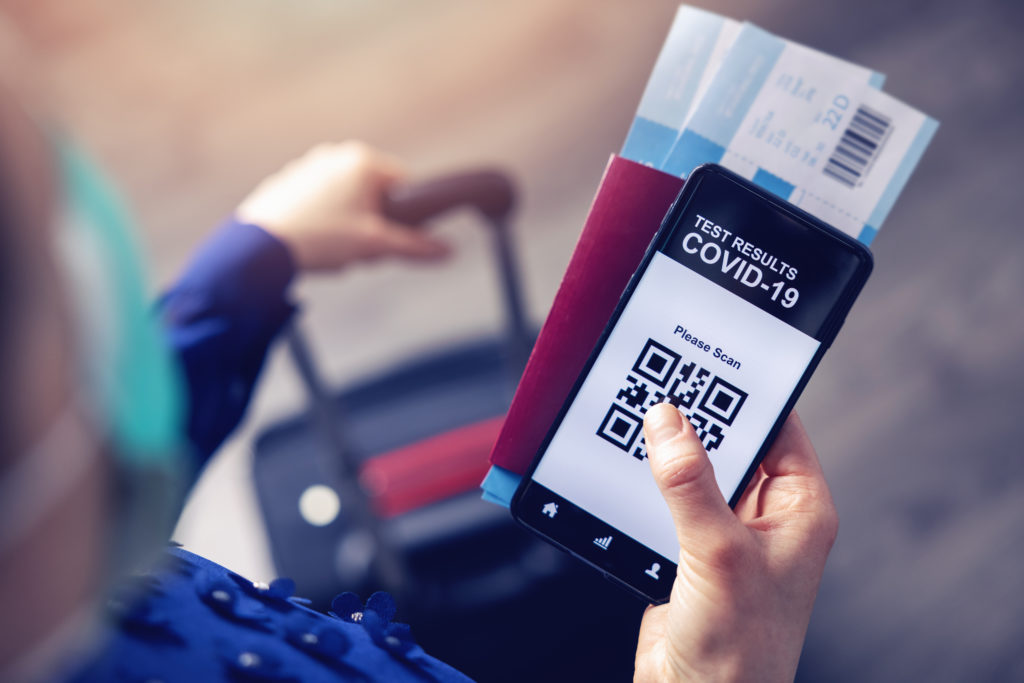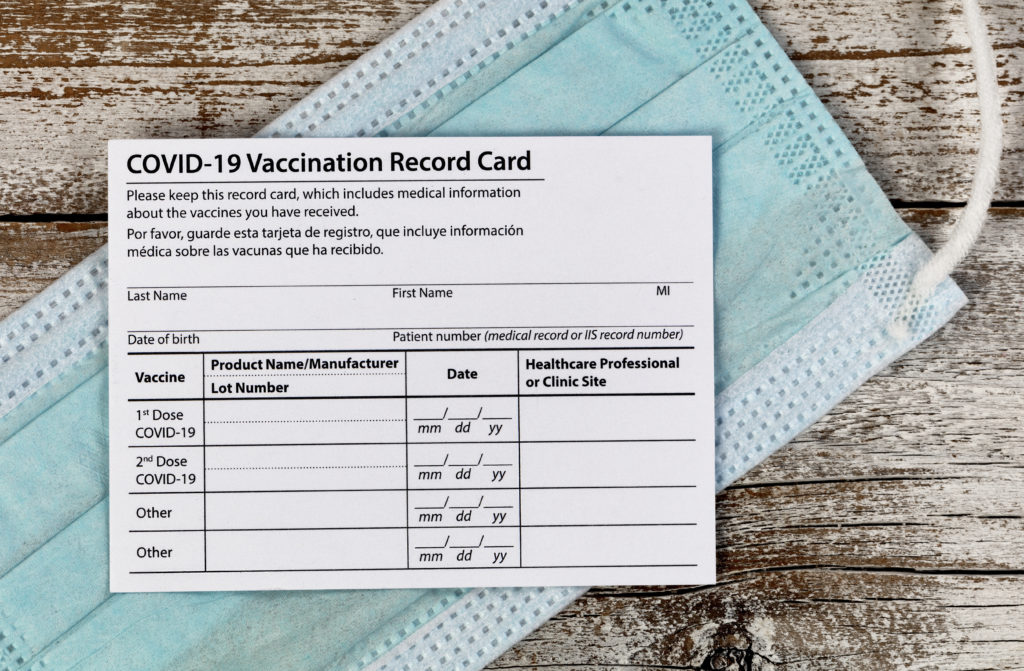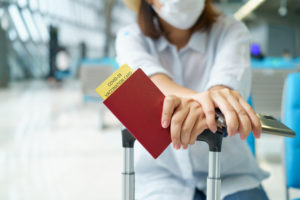On January 26, 2021, the U.S. started requiring a negative COVID-19 test taken within three days of arrival when entering the United States from a foreign country by air. This requirement applies to all nationalities, even U.S. citizens, and vaccinated travelers are NOT exempt. All travelers must have a negative test result or they will be denied a boarding pass when checking in for their flight to the U.S.
As of mid-June 2021, over 50 percent of the U.S. population has received at least one dose of a COVID-19 vaccine, according to Our World in Data. This is more than double the percentage of the world population. Within the United States, we’re seeing many restrictions being lifted and life seems to be returning to some sort of normalcy. However, this is not the case around the world.
International Travel Restrictions Vary by Country

While domestic travel is mostly unrestricted these days (only Hawaii still requires a negative test), you’ll still have to jump through some hoops to fly to the growing number of international destinations open for tourists. Most countries still require international travelers to produce a negative COVID-19 test for entry, but a few places have started to omit this requirement for fully vaccinated travelers. Even a few European nations (such as Denmark and Greece) have relaxed testing requirements for vaccinated visitors.
This list of easy-to-enter countries is expected to grow as the European Union has just added the U.S. to its safe travel list. This is welcome news with the peak summer travel season approaching and vaccinated Americans eager to start traveling around the world again. However, each individual country can still impose their own restrictions and it’s likely that most will require a negative test regardless of vaccination status. Nonetheless, as we get more data on the vaccine’s effectiveness, I would expect more nations to eventually relax testing requirements for vaccinated travelers. For the most up-to-date info on entry requirements by country, visit travel.state.gov.
Related: 5 Important Vaccine Card Tips for Travelers
Testing Still Required for Entry to the United States
While fully vaccinated travelers can fly to certain countries without testing, it’s important to note that you’ll still be required to take a test before returning to the U.S. This means you’ll have to have a plan in place to get tested abroad before your return flight. Several resorts and airports around the world are offering convenient testing locations for travelers and some airlines are also facilitating this process. A great resource for finding testing centers around the world is to look up your destination on testfortravel.com.
The CDC also recently changed the testing requirements to allow certain at-home COVID-19 tests that you could pack and take with you on your trip, to avoid having to find a testing location while abroad.
It’s unclear when the U.S. will lift this requirement for vaccinated travelers, and, so far, there hasn’t been any indication of a timeline. Therefore, I would expect the U.S. to continue requiring a test for entry until international travel without testing becomes more common around the world. And it’s very likely that you’ll need to be vaccinated to avoid testing, at least at first.
Why Is Testing Still Required for Vaccinated Travelers?

Aside from a few exceptions, you’ll find testing to be the norm for international travel. While this may seem unnecessary for vaccinated travelers, the fact is that there are still a lot of unknowns regarding the coronavirus and new variants around the world.
The latest variant that has been a cause for concern is the Delta variant. First discovered in India, the World Health Organization has said it has now spread to over 80 countries worldwide. The good news is that a recent analysis by Public Health England shows that two doses of either the Pfizer or AstraZeneca vaccine is highly effective against hospitalizations. Both are over 90 percent effective and once vaccination rates continue to increase worldwide, we can hope that these variants will become less of a concern.
Related: What Countries Are Open to Vaccinated Travelers?
Proof of Vaccination
Another reason why testing may continue to be required longer than expected is the fact that there isn’t currently a very thorough or universal way to provide proof of vaccination around the world. Many nations have considered some sort of digital vaccine passport, but this is a controversial issue — especially within the United States. A few states have even gone as far as issuing executive orders prohibiting state and local governments from requiring people to prove their vaccination status.
The Biden administration has stated that there aren’t any plans for a federal vaccine passport system and is leaving such a system up to the private sector. This means private businesses will be developing these verification credentials and there will be no centralized, universal federal vaccinations database.
COVID-19 Vaccine Card

Currently, the most widely accepted proof of vaccination is the small white card you received when getting your vaccine shot(s). I remember thinking this wasn’t very official when I received my vaccination and wondered why it wasn’t signed by a health official similar to when I had received travel shots in the past, which included a physician’s signature in my Yellow Card, also known as the Yellow Fever International Certificate of Vaccination.
However, I was assured that the COVID-19 Vaccination Record Card had all the necessary information to prove vaccination. It includes the manufacturer, dose numbers, date, and location each shot was administered. Each vaccine provider has these records available if further verification is necessary, but for now, most places that require proof of vaccination are simply accepting the white COVID-19 vaccine card.
Related: Where Can Americans Travel Right Now?
How to Know When Testing Requirements Will Be Lifted?
The decision to lift the testing requirements for entry into the U.S. will ultimately come from the Centers for Disease Control and Prevention (CDC).
The CDC recently amended guidelines for travel during COVID-19. It still recommends delaying travel until you are fully vaccinated and has different guidelines in place for unvaccinated and vaccinated travelers. For domestic travel, the CDC is no longer advising to get tested if you have been fully vaccinated. Instead, it states to simply self-monitor for symptoms and wear a mask during travel, which is currently a federal requirement.
For international travel, the CDC advises you to fully understand and follow all destination requirements regarding testing, mask wearing, and quarantine. It currently requires all travelers to have a negative COVID-19 test no more than three days before returning to the U.S. or documentation of recovery from COVID-19 in the past three months. After an international arrival, the CDC is still recommending getting another test 3-5 days after travel.
Since the CDC is no longer recommending testing for domestic travel if you’re fully vaccinated, I think there is a light at the end of the tunnel for entering the U.S. without testing requirements. Time will tell when this restriction will be lifted, but I believe we’ll still have the testing requirement through most, if not all, of 2021.
Once vaccination rates around the world catch up to the numbers seen in the U.S. and new variants are under control, I think we’ll start to see testing requirements disappear for fully vaccinated travelers. It may only be for arrivals from certain countries at first, but hopefully by this time next year, we’ll all be able to travel seamlessly across the world again.
For the most up-to-date guidelines and travel requirements, make sure to keep your eye on the CDC’s COVID-19 page for international travel.






